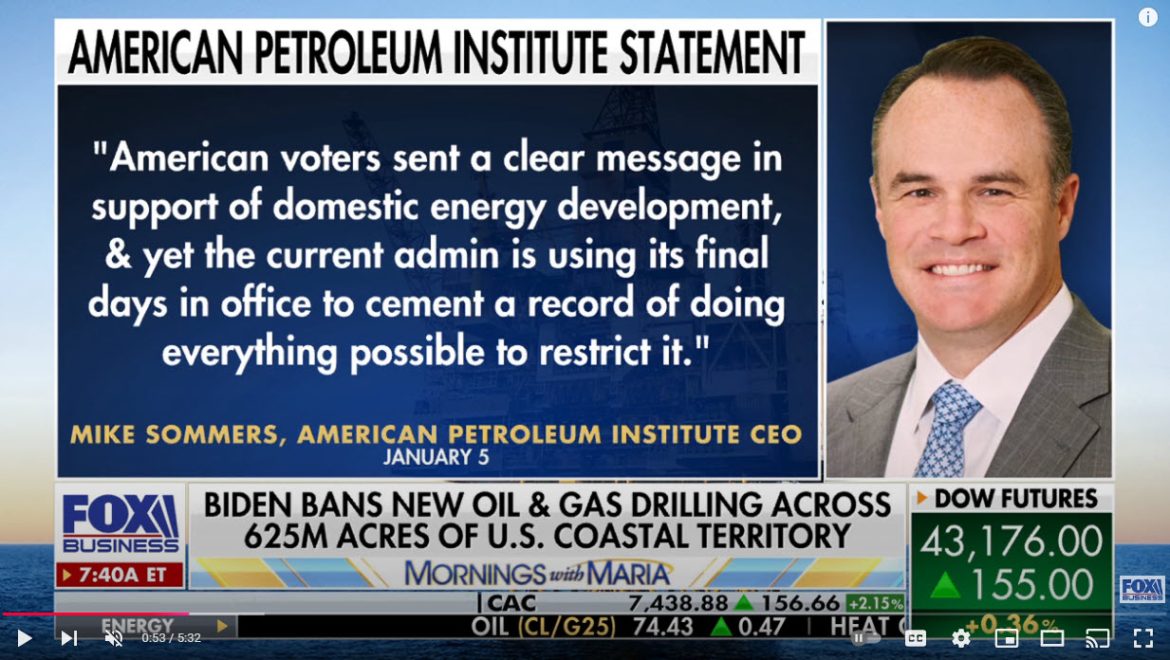President Joe Biden announces plans to ban new offshore oil and gas drilling across approximately 625 million acres of ocean along the Atlantic and Pacific coastlines. The move, aimed at combating climate change and protecting marine ecosystems, comes just weeks before President-elect Donald Trump is set to assume office.
In a statement accompanying the decision, Biden emphasizes the environmental risks associated with offshore drilling. “Drilling off our coasts poses irreversible damage to our ecosystems, jeopardizes marine life, and is unnecessary to meet our energy needs,” Biden says. He highlights his administration’s efforts to accelerate the transition to clean energy, arguing that America’s future lies in sustainable solutions rather than expanded fossil fuel exploration.
The ban includes significant swathes of ocean along the Atlantic seaboard and Pacific coastline, ensuring that new leases for oil and gas drilling will not be issued in these regions. Environmental groups praise the decision, calling it a vital step in protecting coastal communities and addressing the urgent threats of climate change. Advocates point to the potential for catastrophic oil spills and long-term damage to marine biodiversity as key reasons for restricting offshore drilling.
Energy experts, however, warn of potential economic and energy security implications. Critics argue that the ban could lead to higher energy costs, reduced domestic oil production, and greater reliance on foreign energy sources. Some industry leaders have called the decision a “Hail Mary” move, accusing the Biden administration of prioritizing environmental politics over pragmatic energy policy.
President-elect Trump and his incoming administration are already signaling plans to challenge the ban. Energy analysts suggest that reversing the order could become a focal point of Trump’s energy agenda, as he has consistently advocated for expanding domestic oil and gas production. Trump’s team argues that offshore drilling is critical for job creation and energy independence, framing Biden’s decision as harmful to America’s economic interests.
Legal experts note that while a reversal is possible, it may face procedural hurdles. Biden’s use of executive authority under the Outer Continental Shelf Lands Act provides a robust legal framework for the ban, potentially complicating efforts to undo it. Any reversal could lead to prolonged legal battles between environmental groups and the federal government.
The decision comes as global energy markets remain volatile and as nations grapple with balancing economic growth and environmental protection. Biden’s move underscores his administration’s commitment to climate action, even as critics accuse him of undermining the U.S. energy sector.
The offshore drilling ban marks a significant chapter in the nation’s energy policy, setting the stage for a clash between environmental advocates and proponents of expanded fossil fuel production under Trump’s leadership. The debate highlights the deep divisions in America’s approach to energy and climate issues, with implications for the economy, environment, and global standing.



